All content on this site is intended for healthcare professionals only. By acknowledging this message and accessing the information on this website you are confirming that you are a Healthcare Professional. If you are a patient or carer, please visit Know ALL.
The all Hub website uses a third-party service provided by Google that dynamically translates web content. Translations are machine generated, so may not be an exact or complete translation, and the all Hub cannot guarantee the accuracy of translated content. The all and its employees will not be liable for any direct, indirect, or consequential damages (even if foreseeable) resulting from use of the Google Translate feature. For further support with Google Translate, visit Google Translate Help.
The ALL Hub is an independent medical education platform, sponsored by Amgen, Autolus, Jazz Pharmaceuticals, and Pfizer and supported through an educational grant from the Hippocrate Conference Institute, an association of the Servier Group. Funders are allowed no direct influence on our content. The levels of sponsorship listed are reflective of the amount of funding given. View funders.
Now you can support HCPs in making informed decisions for their patients
Your contribution helps us continuously deliver expertly curated content to HCPs worldwide. You will also have the opportunity to make a content suggestion for consideration and receive updates on the impact contributions are making to our content.
Find out more
Create an account and access these new features:
Bookmark content to read later
Select your specific areas of interest
View ALL content recommended for you
ECOG-ACRIN E1910: A phase III trial of blinatumomab plus chemotherapy vs chemotherapy alone in patients with newly diagnosed BCR::ABL1-negative B-ALL
The phase III ECOG-ACRIN E1910 trial (NCT02003222) demonstrated that adding blinatumomab to consolidation chemotherapy significantly improved 3-year overall survival (85% vs 68%) and improved relapse-free survival (80% vs 64%) compared with chemotherapy alone in patients aged 30–70 years with newly diagnosed BCR::ABL1-negative B-cell precursor acute lymphoblastic leukemia (B-ALL) in MRD-negative remission. With a median follow-up of 43 months, the combination therapy showed a higher incidence of Grade 3 non-hematologic adverse events and treatment-related psychiatric or neurological events (43% vs 36% and 23% vs 5%, respectively).
These results led to FDA (2024) and EC (2025) approvals of blinatumomab as consolidation therapy for CD19+ Ph- B-ALL, regardless of MRD status. The findings support the inclusion of immunotherapy in initial treatment for B-ALL, changing the frontline standard of care for patients with ALL.
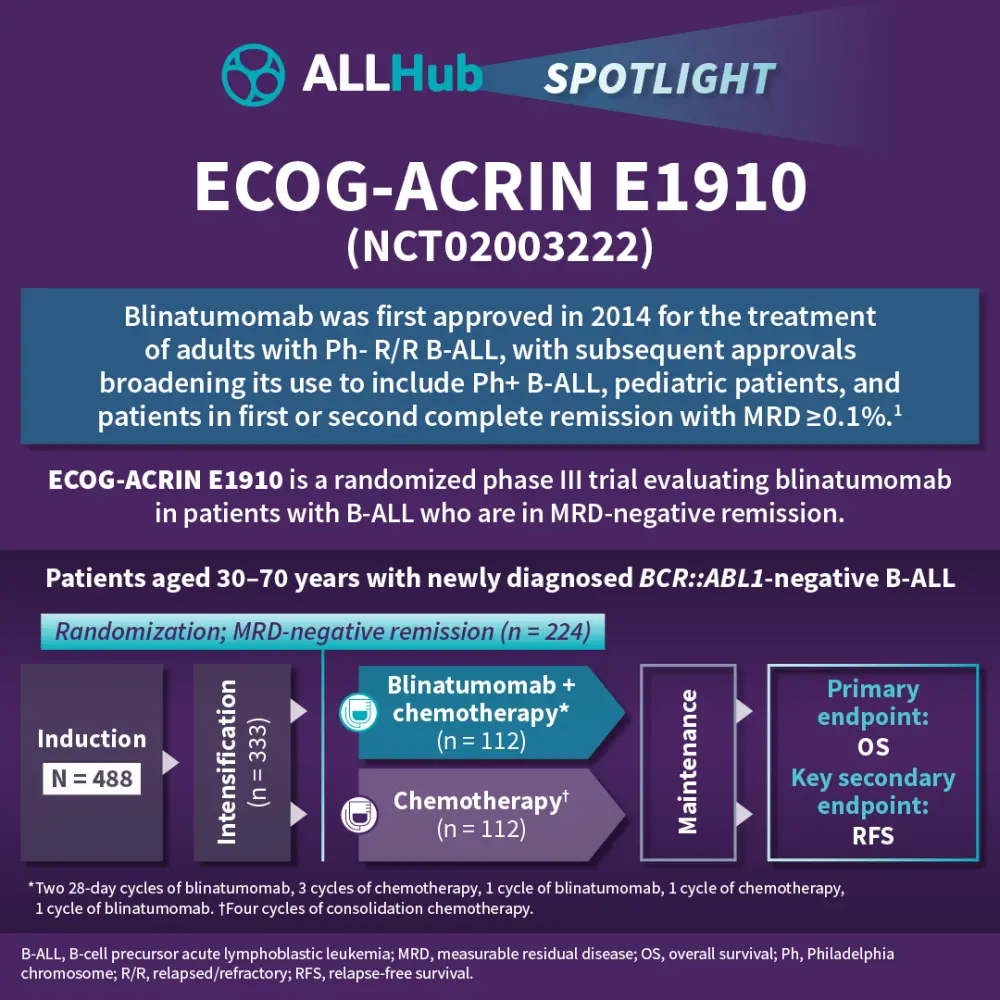
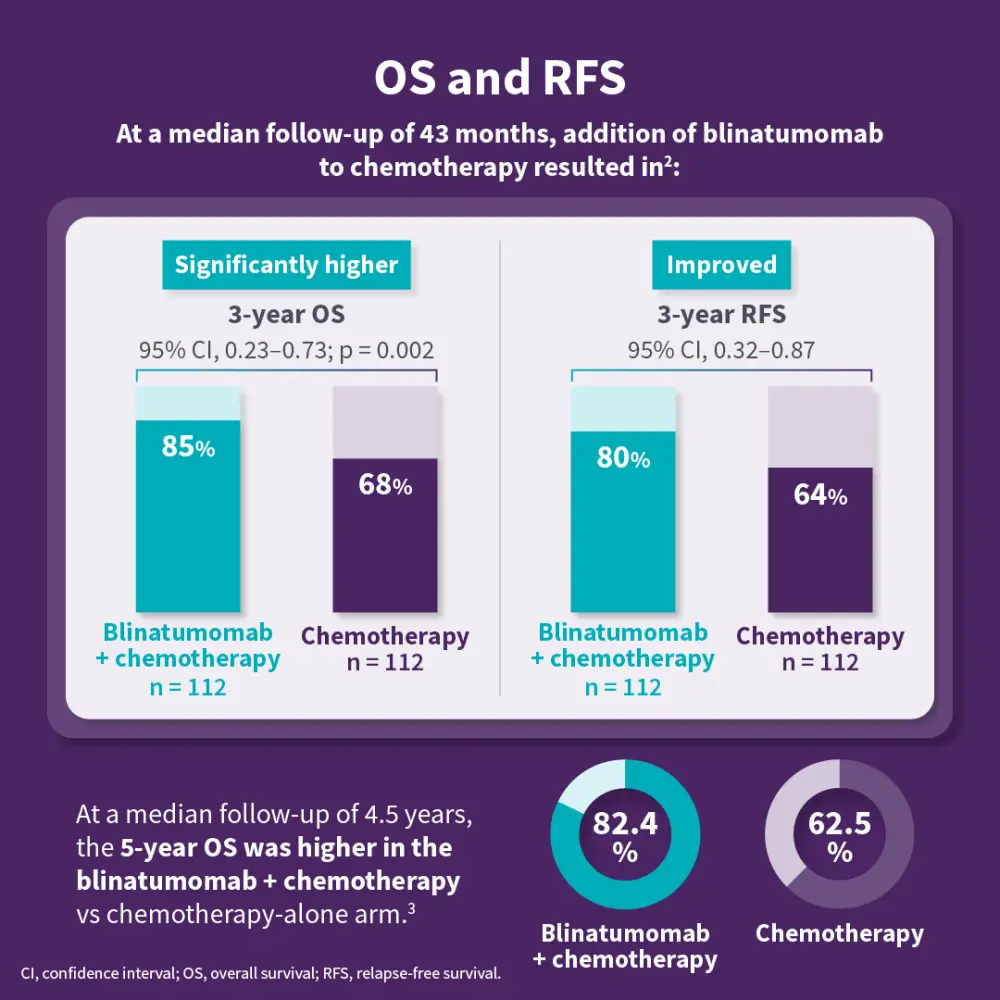
Blinatumomab. Prescribing Information. Amgen Inc; 2014. Revised Jul 2018.
Litzow M, et al. N Engl J Med. 2024;391:320–333.
PR Newswire. https://www.prnewswire.co.uk/news-releases/european-commission-approves-blincyto-in-philadelphia-chromosome-negative-cd19-positive-b-cell-precursor-acute-lymphoblastic-leukemia-in-the-consolidation-phase-302363668.html. Published Jan 29, 2025. Accessed Jun 3, 2025.
Dinner S. Abstract #S110. Presented at: European Hematology Association 2025 Congress; Jun 12–15, 2025; Milan, IT.
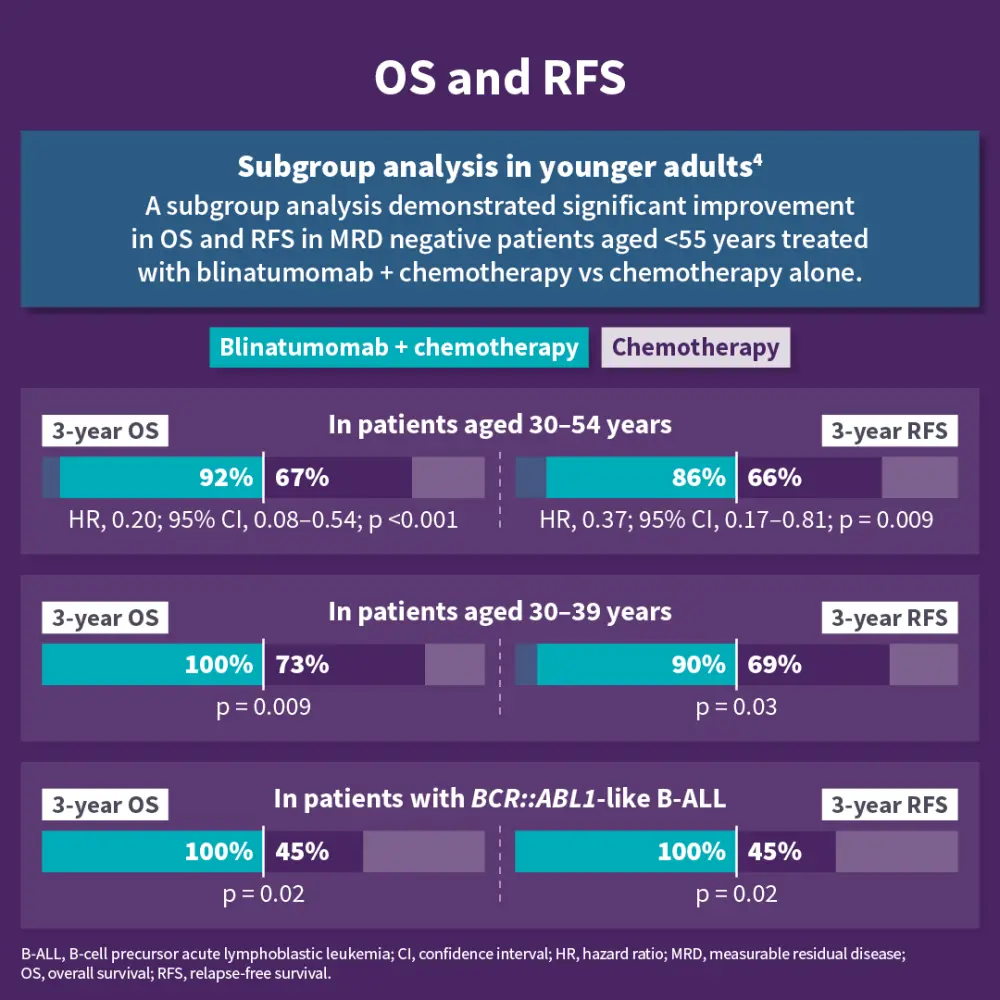
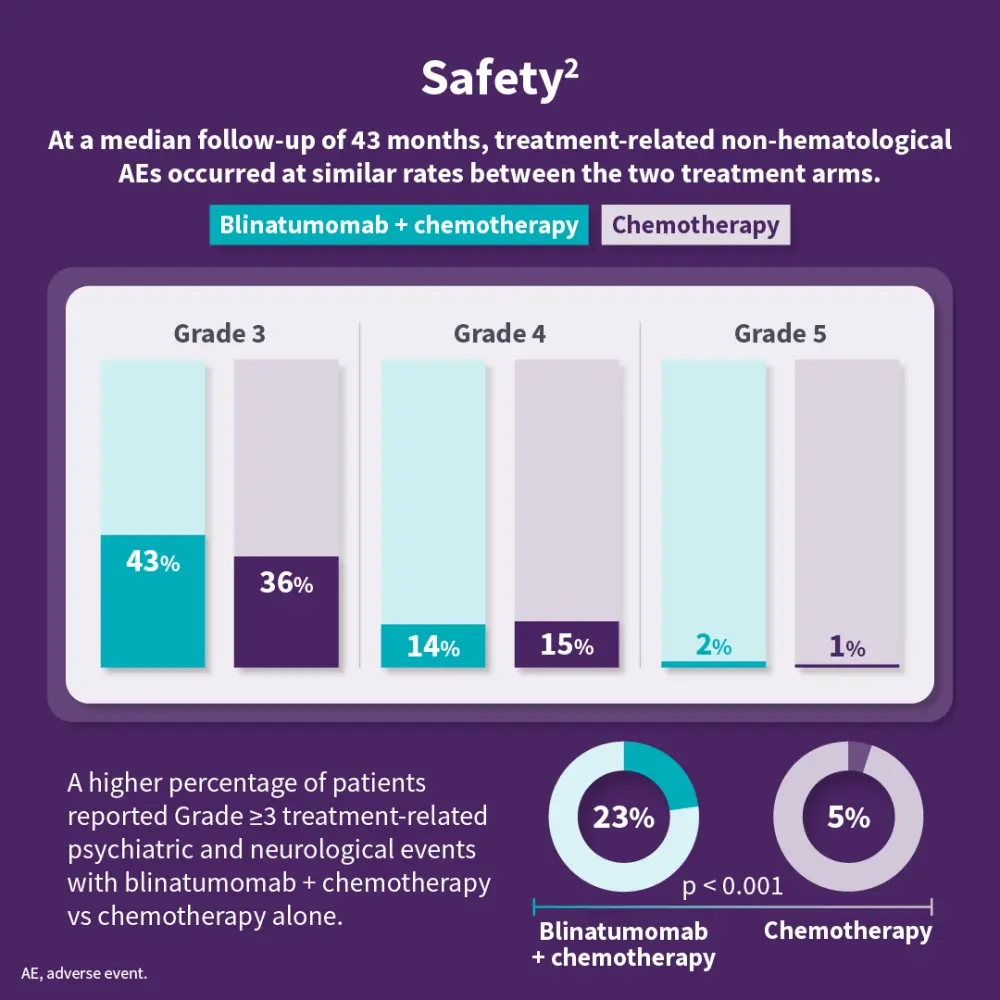
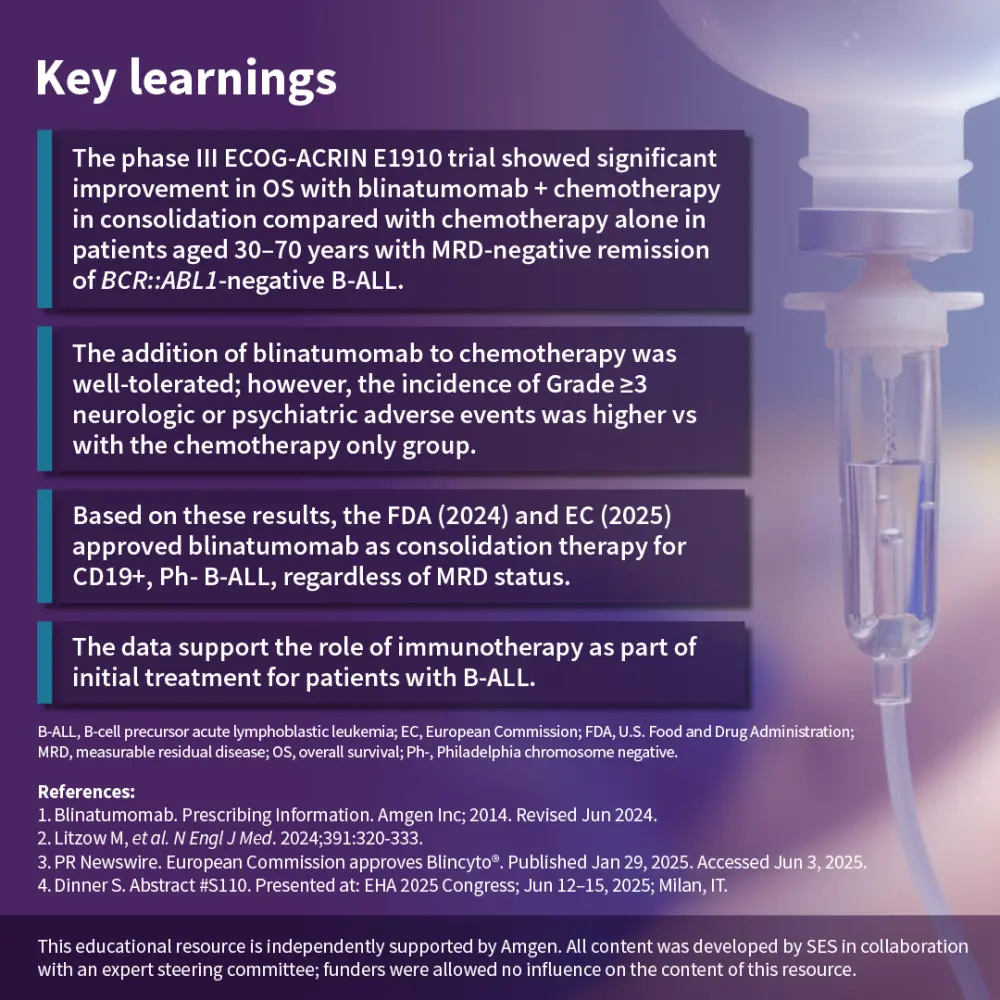
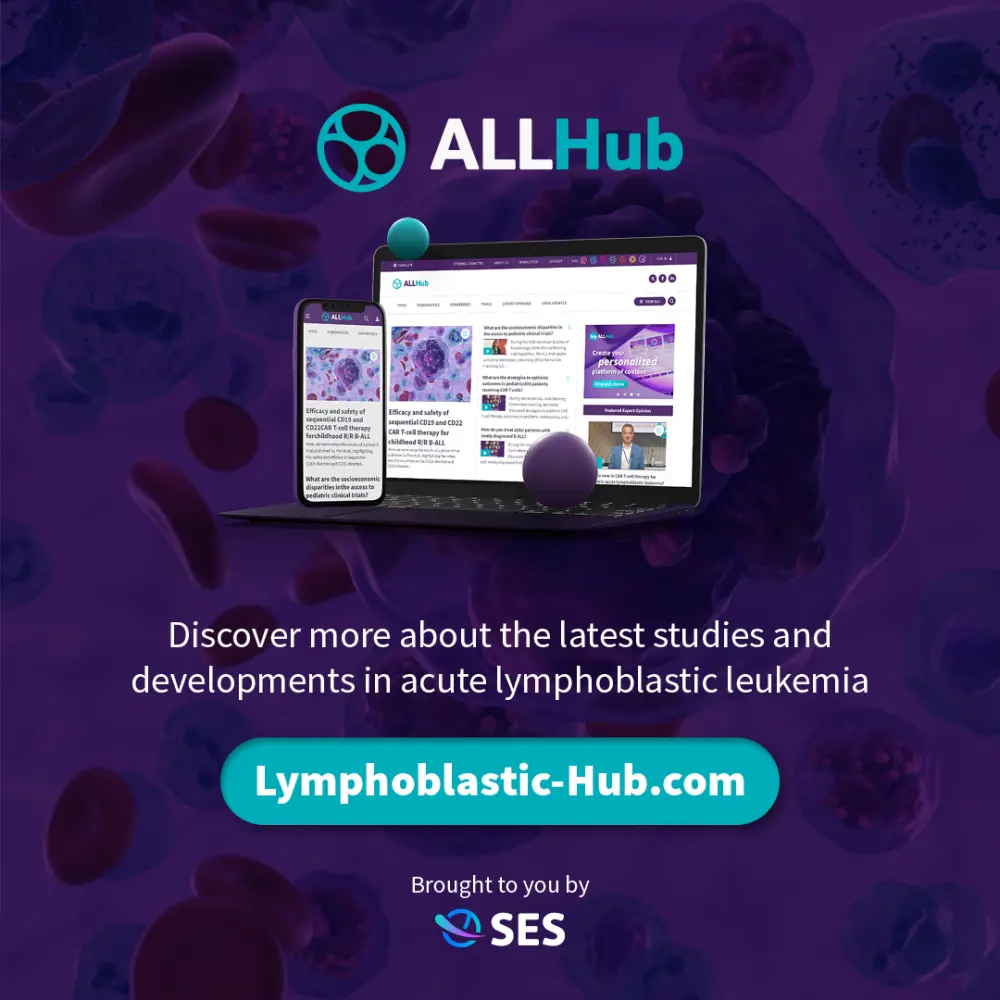
This educational resource is independently supported by Amgen. All content was developed by SES in collaboration with an expert steering committee; funders were allowed no influence on the content of this resource.
Please indicate your level of agreement with the following statements:
The content was clear and easy to understand
The content addressed the learning objectives
The content was relevant to my practice
I will change my clinical practice as a result of this content





